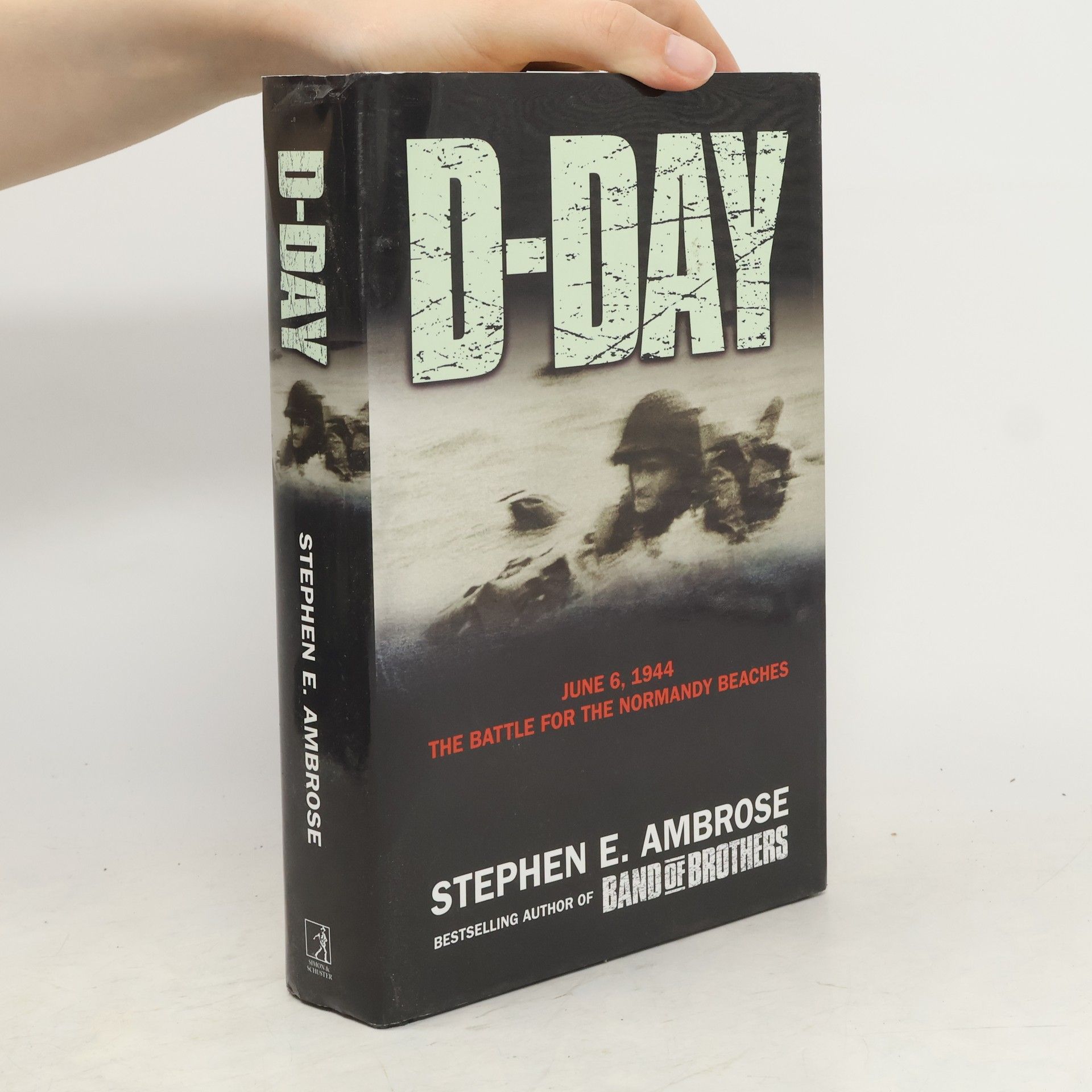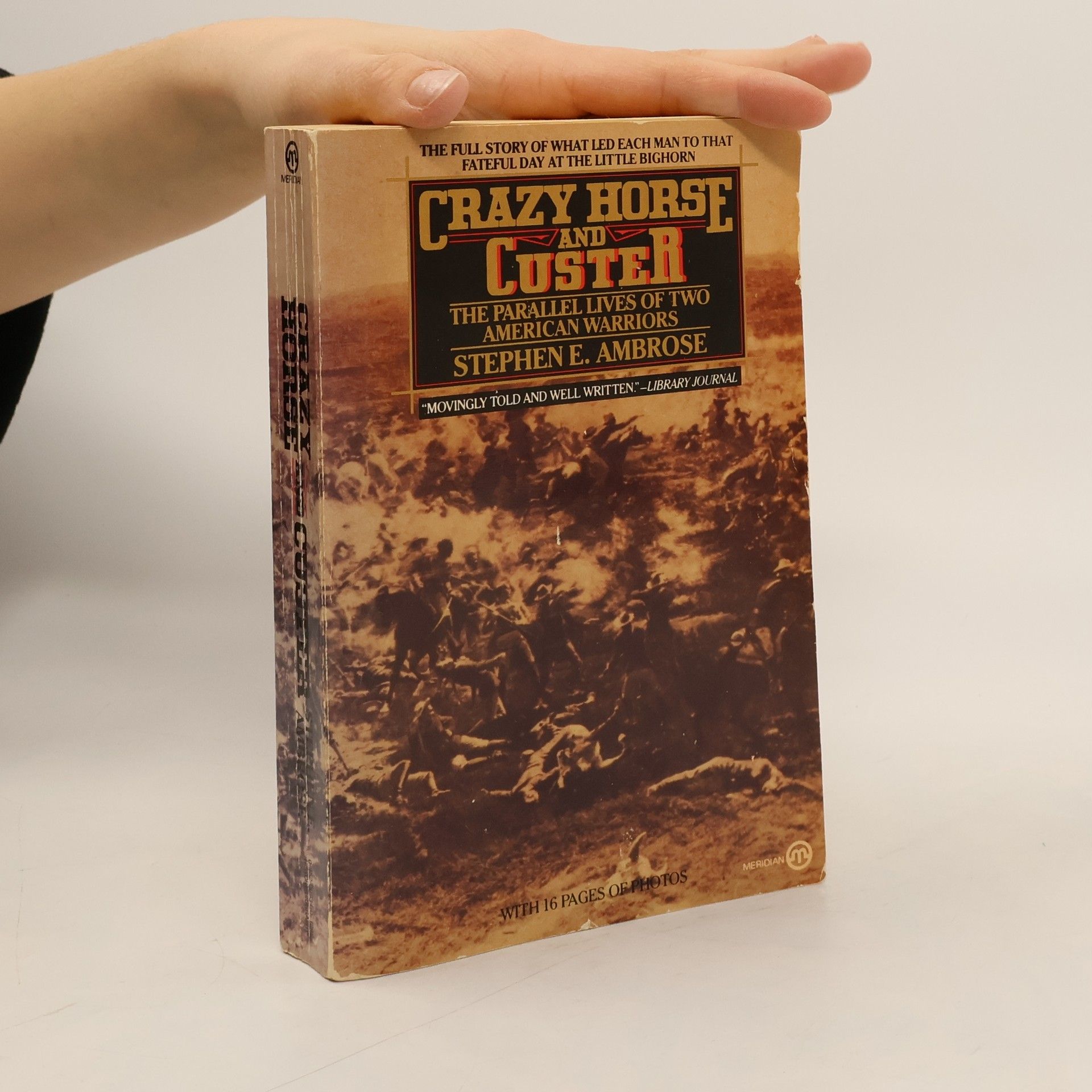Stephen E. Ambrose narrates the extraordinary journey of Easy Company, 506th Parachute Infantry Regiment, 101st Airborne Division, US Army, composed of ordinary men who became remarkable soldiers during World War II. Formed in the summer of 1942, these citizen soldiers were motivated by a $50 monthly bonus and a desire to excel. Their training in Georgia laid the foundation for their exceptional performance in combat, particularly during pivotal moments in Holland and the Ardennes. Easy Company faced relentless challenges, earning tough assignments as they advanced through Europe. They parachuted into France on D-Day, neutralizing a critical artillery battery, and later participated in the Arnhem campaign. During the Battle of the Bulge, they held the line in Bastogne, surrounded yet resolute, before spearheading a counteroffensive. Their journey culminated in the capture of Hitler's Eagle's Nest in Berchtesgaden. These men, shaped by the hardships of the Depression, formed a deep bond through shared experiences. Despite their rough edges—drinking too much wine and clashing with fellow soldiers—they learned selflessness and camaraderie. This account highlights the sacrifices they made for one another, the harsh realities of war, and the leadership that inspired them. E Company exemplified resilience, enduring extreme hardships and significant casualties, with the Purple Heart symbolizing their commitment and sacrifice.
Stephen E Ambrose Livres
Stephen Ambrose était un historien américain célébré pour ses biographies perspicaces de présidents américains. Son travail a exploré la vie et les présidences de personnalités telles que Dwight Eisenhower et Richard Nixon. Le style narratif d'Ambrose donnait vie aux événements historiques, rendant les paysages politiques complexes accessibles à un large public. Ses contributions à l'histoire présidentielle et aux études américaines sont significatives, offrant aux lecteurs un regard captivant sur le passé de la nation.






Band of brothers
- 336pages
- 12 heures de lecture
They fought on Utah Beach, in Arnhem, Bastogne, the Bulge; they spearheaded the Rhine offensive and took possession of Hitler's Eagle's Nest in Berchtesgaden. Easy Company, 506th Airborne Division, U.S. Army, was as good a rifle company as any in the world. From their rigorous training in Georgia in 1942 to D-Day and victory, Ambrose tells the story of this remarkable company, which kept getting the tough assignments. Easy Company was responsible for everything from parachuting into France early D-Day morning to the capture of Hitler's Eagle's Nest at Berchtesgaden. BAND OF BROTHERS is the account of the men of this remarkable unit who fought, went hungry, froze, and died, a company that took 150 percent casualties and considered the Purple Heart a badge of office. Drawing on hours of interviews with survivors as well as the soldiers' journals and letters, Stephen Ambrose tells the stories, often in the men's own words, of these American heroes.
D-Day : June 6, 1944
- 655pages
- 23 heures de lecture
It is the young men born into the false prosperity of the 1920s and brought up in the bitter realities of the Depression of the 1930s that this book is about. The literature they read as youngsters was anti-war and cynical, portraying patriots as suckers, slackers and heroes. None of them wanted to be part of another war. They wanted to be throwing baseballs, not handgrenades; shooting .22s at rabbits, not M-1s at other young men. But when the test came, when freedom had to be fought for or abandoned, they fought (from the Prologue).
The book begins at midnight, 5-6 June 1944, when the first British and American airborne troops penetrated France and launched the invasion. What happens in between is covered from every perspective: the high command, the enlisted ranks, the French civilians the German defenders, and Allied attackers by land, sea and air.
THE VICTORS is a breathtaking new work from bestselling historian Stephen E. Ambrose. It follows the momentous events of the war from D-Day, 6 June 1944, through to the final days when the Allied soldiers pushed the German troops out of France, chased them across Germany, and, on 7 May 1945, destroyed the Nazi regime. At the centre of this epic drama are the citizen soldiers, the boys who became men as they fought, proving eventually unbeatable. Drawing from his extensive research for his previous bestselling books on the conflict, Ambrose creates one of the most exciting single-volume histories of the Second World War ever written. THE VICTORS is a compelling celebration of military genius and heroism, and of camaraderie and courage.
War stories. An authoritative collection of military histories from one of the foremost authors on the subject, Stephen E. Ambrose,historical consultant on Steven Spielberg's Saving Private Ryan. Each title include a full index and list of sources.
Crazy Horse and Custer
The Parallel Lives of Two American Warriors
On the sparkling morning of June 25, 1876, 611 men of the United States 7th Cavalry rode toward the banks of the Little Bighorn in the Montana Territory, where 3,000 Indians stood waiting for battle. The lives of two great warriors would soon be forever linked throughout history: Crazy Horse, leader of the Oglala Sioux, and General George Armstrong Custer. Both were men of aggression and supreme courage. Both became leaders in their societies at very early ages; both were stripped of power, in disgrace, and worked to earn back the respect of their people. And to both of them, the unspoiled grandeur of the Great Plains of North America was an irresistible challenge. Their parallel lives would pave the way, in a manner unknown to either, for an inevitable clash between two nations fighting for possession of the open prairie. Copyright © Libri GmbH. All rights reserved.
Undaunted Courage
Meriwether Lewis, Thomas Jefferson, and the Opening of the American West
- 511pages
- 18 heures de lecture
'This was much more than a bunch of guys out on an exploring and collecting expedition. This was a military expedition into hostile territory'. In 1803 President Thomas Jefferson selected his personal secretary, Captain Meriwether Lewis, to lead a pioneering voyage across the Great Plains and into the Rockies. It was completely uncharted territory; a wild, vast land ruled by the Indians. Charismatic and brave, Lewis was the perfect choice and he experienced the savage North American continent before any other white man. UNDAUNTED COURAGE is the tale of a hero, but it is also a tragedy. Lewis may have received a hero's welcome on his return to Washington in 1806, but his discoveries did not match the president's fantasies of sweeping, fertile plains ripe for the taking. Feeling the expedition had been a failure, Lewis took to drink and piled up debts. Full of colourful characters - Jefferson, the president obsessed with conquering the west; William Clark, the rugged frontiersman; Sacagawea, the Indian girl who accompanied the expedition; Drouillard, the French-Indian hunter - this is one of the great adventure stories of all time and it shot to the top of the US bestseller charts. Drama, suspense, danger and diplomacy combine with romance and personal tragedy making UNDAUNTED COURAGE an outstanding work of scholarship and a thrilling adventure.
Handbook on German military forces
- 670pages
- 24 heures de lecture
In March 1945, the US War Department issued a restricted document called Handbook on German Military Forces. The restricted classification was removed in 1953, but this handbook has until now remained virtually unknown. It is a compendium of information on every aspect of Hitler's forces, which gives credence to the contention that by 1945 US Army Chief of Staff George G.Marshall may have known more about the German military than Hitler himself.
Eisenhower
- 640pages
- 23 heures de lecture
This biography of Dwight D. Eisenhower takes the reader up through his military career and his leadership as Allied Supreme Commander, his presidency - the first of the Cold War - and his relations with family, friends and Roosevelt, Churchill, Stalin, McCarthy, Nixon, LBJ and others.



